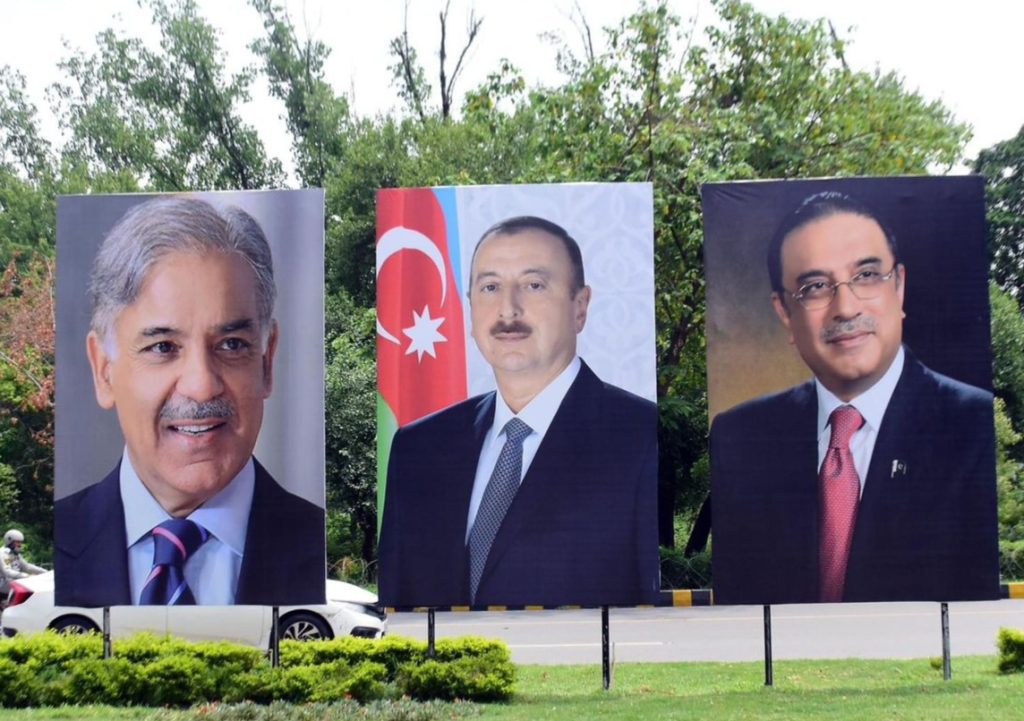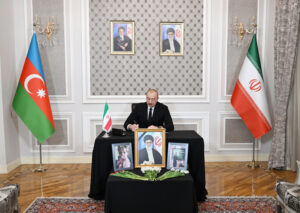Strategic Ties of Azerbaijan and Pakistan

The diplomatic relationship between Azerbaijan and Pakistan began shortly after Azerbaijan gained independence from the Soviet Union. Pakistan was one of the first countries to recognize Azerbaijan’s independence in 1991, and diplomatic relations were officially established on June 9, 1992. This early recognition laid the foundation for a robust and enduring partnership. The establishment of embassies in each other’s capitals—Pakistan in Baku (1993) and Azerbaijan in Islamabad (1997)—further solidified these ties.
Strategic Partnership and Military Cooperation
The relationship between Azerbaijan and Pakistan transcends traditional diplomatic niceties, evolving into a strategic partnership characterized by strong military and defense collaboration. Pakistan’s consistent support for Azerbaijan’s territorial integrity, particularly regarding the Nagorno-Karabakh conflict with Armenia, has been a cornerstone of this alliance. Pakistan’s decision to avoid establishing diplomatic relations with Armenia underscores its commitment to Azerbaijan. This support was notably demonstrated on April 30, 1993, when Pakistan, then a member of the UN Security Council, presided over the meeting that adopted Resolution 822 concerning Azerbaijan.
Military cooperation has also seen significant advancements. Joint military exercises under the “Three Brothers” initiative, which includes Turkey, highlight the deepening of military-political relations. The discussions at the trilateral meeting in Astana on July 3, 2023, emphasized continued joint military exercises and the potential for joint production ventures in the defense sector, reflecting a shared interest in bolstering military capabilities.
Economic and Trade Relations
Economic ties between Azerbaijan and Pakistan have grown steadily since the signing of the “Protocol on the Establishment of a Joint Commission at the Government Level” in 1995. This was a crucial step in formalizing economic cooperation, followed by the first meeting of this Joint Commission five years later. Significant milestones include:
- 2017: An export mission from Azerbaijan visited Pakistan, leading to the first meeting of the Joint Working Group on Trade Cooperation and the signing of a Memorandum of Understanding on trade promotion.
- 2019: Baku hosted multiple business forums and exhibitions, focusing on various sectors including agriculture, energy, pharmaceuticals, and construction.
- 2023: The trade turnover between the two countries reached $27 million, with the signing of a Framework Agreement on LNG cargoes between SOCAR Trading and Pakistan LNG Limited.
Despite these achievements, the economic potential between the two nations remains largely untapped. However, over 3,600 Pakistani companies are registered in Azerbaijan, indicating a strong foundation for future growth. Azerbaijan’s decision to reduce import duty on Pakistani rice to 0% until December 31, 2027, exemplifies efforts to boost trade.
Transportation and Infrastructure Cooperation
Transportation links have significantly improved, facilitating better economic and people-to-people connections. Direct flights by AZAL from Baku to Lahore and Islamabad, and the increased volume of transit cargo, underscore the strengthening of transportation ties. Collaborations along the Middle Corridor, North-South Corridor, and East-West Corridor present further opportunities for both countries.
Multilateral Engagement and Mutual Support
Azerbaijan and Pakistan’s collaboration extends to various international platforms, showcasing a united front on multiple global issues. The regular interactions between President Ilham Aliyev and Pakistani Prime Minister Muhammad Shehbaz Sharif at international events, such as the Shanghai Cooperation Organisation summits, reinforce this alliance.
Humanitarian and Charitable Initiatives
The Heydar Aliyev Foundation’s humanitarian projects in Pakistan, such as healthcare and education initiatives, have further strengthened bilateral ties. These efforts not only improve Pakistan’s socio-economic conditions but also enhance people-to-people connections, fostering goodwill and mutual respect.
Conclusion and Future Prospects
The Azerbaijan-Pakistan relationship is a proof to a multifaceted partnership rooted in historical ties, strategic cooperation, and mutual support. While significant strides have been made in military, economic, and diplomatic arenas, there remains considerable potential for growth. By capitalizing on existing frameworks and exploring new avenues for collaboration, Azerbaijan and Pakistan are well-positioned to deepen their partnership and achieve greater mutual prosperity. The foundation laid by past achievements, combined with ongoing and upcoming initiatives, sets a positive trajectory for future cooperation across a wide range of sectors.


